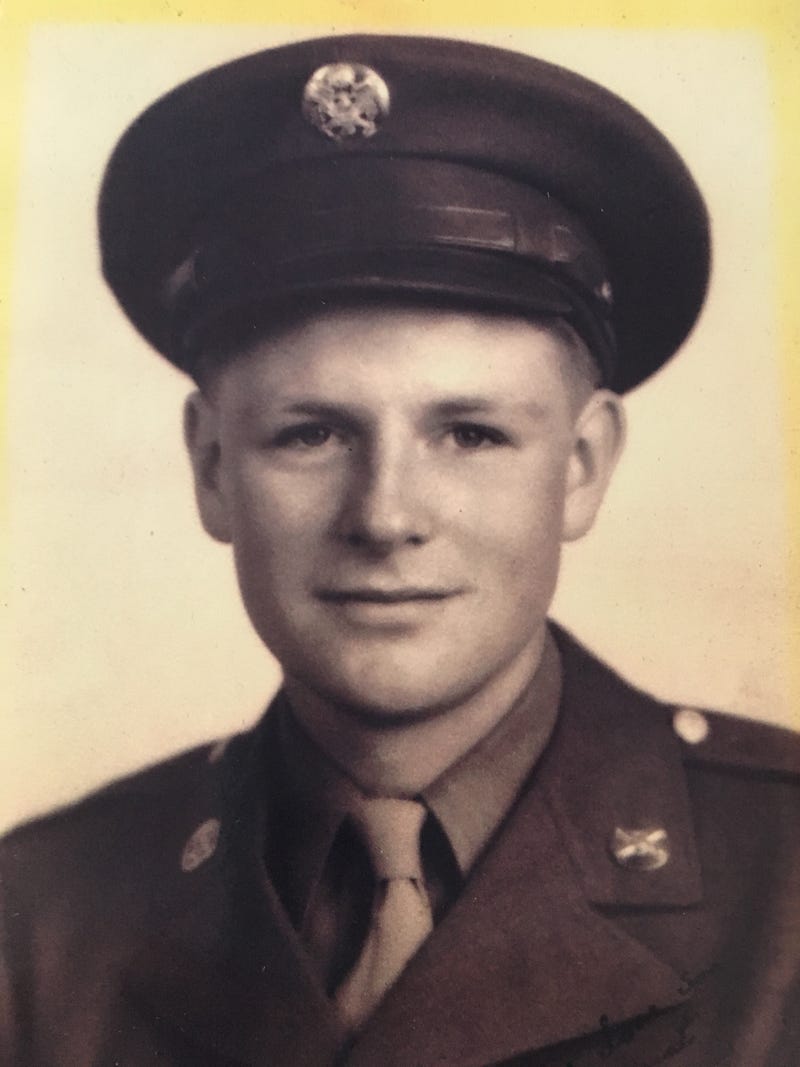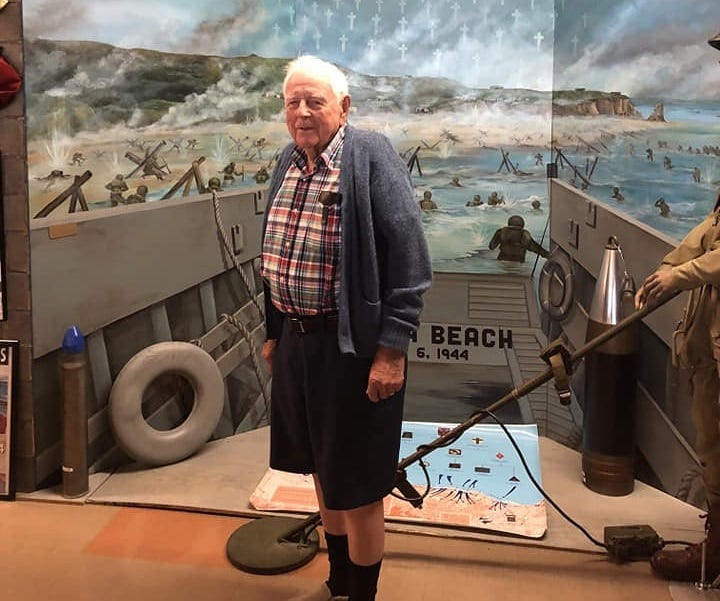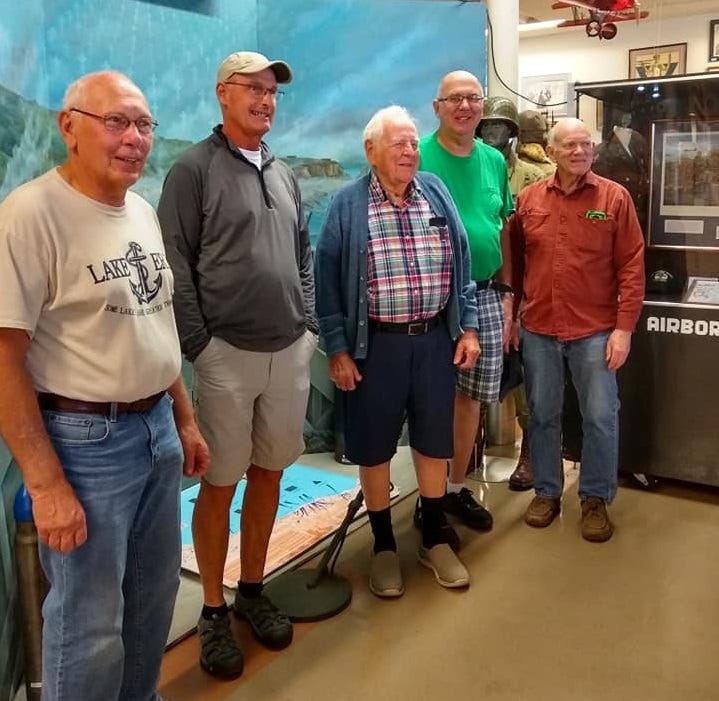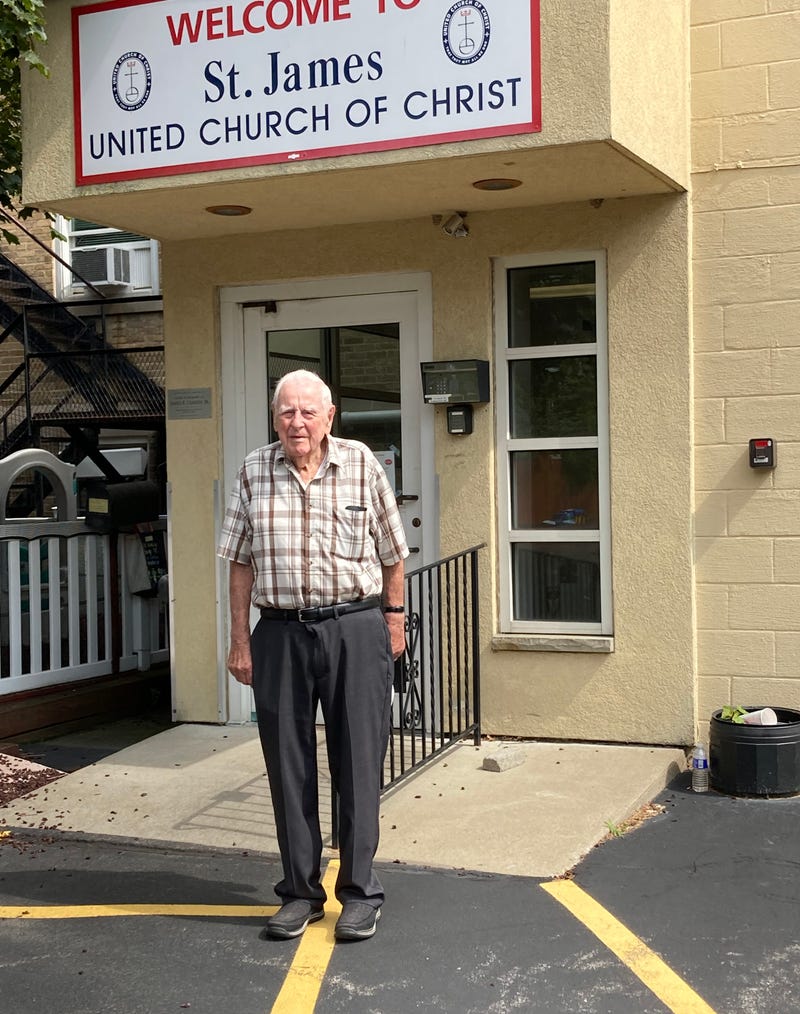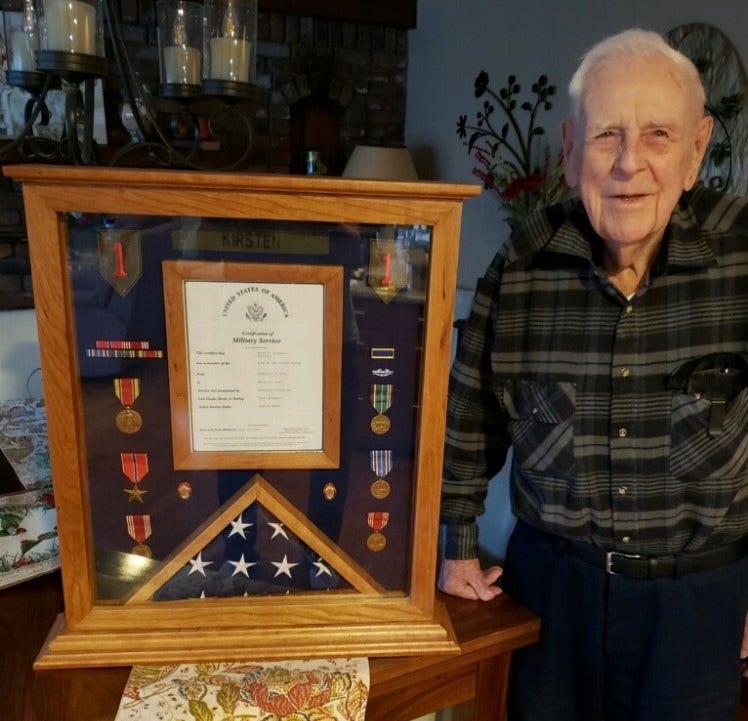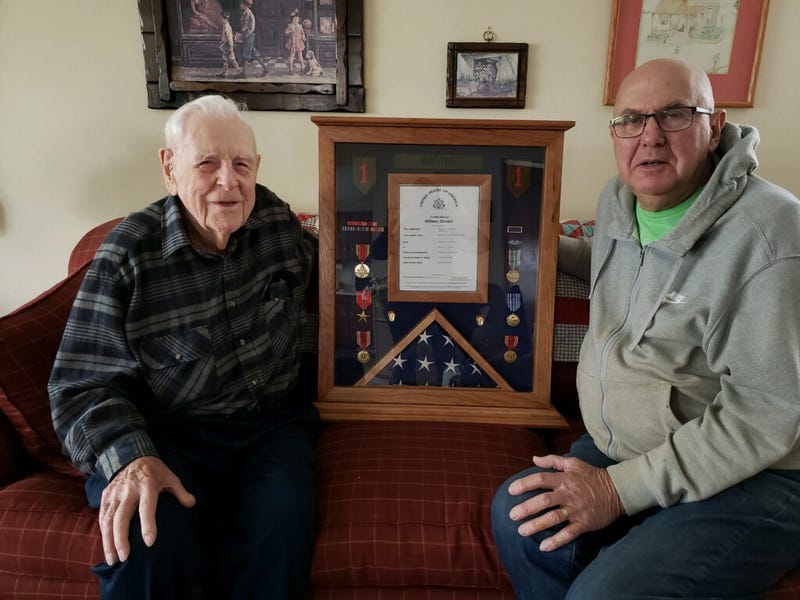
Hamburg, N.Y. (WBEN) - Thursday marks the 80th anniversary of the Invasion of Normandy, also widely known as D-Day, which was a pivotal turning point for the Allied Forces in World War II.
It was the efforts of American, British and Canadian forces on June 6, 1944 on the beaches of Northern France to begin the reclamation of Nazi-occupied France in the largest seaborne invasion in history. In the several months following D-Day, Allied Forces advanced further into France, and later into other countries like Belgium and Germany, which eventually culminated with the German surrender in May of 1945.
According to the National World War II Museum in New Orleans, as of 2023, it was estimated that 119,550 of the 16.4 million Americans who served in World War II were still alive.
One of those veterans who shared his experience in the war with WBEN was Western New York native Horst Kirsten, who served in the 1st Infantry Division when D-Day took place 80 years ago. He was among the some 34,000 troops to land on Omaha Beach on June 6, 1944 by way of the amphibious landing crafts. His unit was the third wave in on the beach.
"We were on the ship, and we left the ship at nighttime. We got over there early in the morning, and we were the third group, wave to go in," Kirsten recalled. "Everything was going on, and you don't think too much about it, or be worried about it. We just kept on going."
For Kirsten, D-Day was his first taste of combat after being drafted into the Army for Military Service in early 1943. However, Normandy was not supposed to be the first stop for him after his basic training and being stationed in Texas and Mexico for a while.
"We were originally supposed to go to Africa, but that was changed, and they decided to go to Europe and get ready for D-Day," Kirsten said.
Mike Zoerb has been a longtime friend of Kirsten and his family. Over the last five or six years, Zoerb has gone out with Kirsten for breakfast once a week, and every so often, a discussion about the war would come up. The first one came on a previous anniversary of D-Day.
"We've never talked about the war, and I asked him if he remembers where he was on this day. He said, 'Oh yeah.' And I said, 'I have some pictures on my phone. Do you want to see them?' I thought, 'Maybe that's the wrong question to ask, I don't want to bring stuff up that's gonna bring up issues.' He did, he wanted to see them. Then he's looking at them and he said, 'I remember getting off the boat. It was so rough, people were getting seasick. We just wanted to get off the ship and get on land,'" Zoerb recalled of his first conversation about D-Day with Kirsten. "[He said] there were bodies all over the place, and the water had a reddish tinge to it. And it's like, 'Wow.' I mean, you've heard all these stories, but now to hear it from somebody that was there, it's just mind boggling. And then every once in a while, we'd get together and we'd talk about some more things. I've learned so much from this guy, it's just incredible."
After seeing videos and movies, along with old news reels of World War II, Zoerb appreciates what all these men went through over several years. That level appreciation was elevated quite a bit when he heard Kirsten describe the scene and what it was like first-hand to be there.
"This man, he went through it and he survived through it. It's more impressive, and it just makes you think a whole lot more of what you have, and what these people have went through for us," Zoerb said.
After D-Day, the fighting in France did not stop for Kirsten and the rest of his fellow soldiers.
"After we left there, we moved up some a couple of days, and then we moved up towards Cherbourg. We were supposed to go get that [port] so we can bring our ships in, but we didn't. We moved alongside of them and the paratroopers moved in and took over that part of it. And from there, we went to Le Havre," Kirsten detailed.
Eventually, Kirsten found himself in Belgium in December of 1944, fighting at the Battle of the Bulge, which was the last German offensive of the war. At the time of the German surrender in May, he was in Germany near the border of Czechoslovakia.
At one point in time, Zoerb got some maps and wanted to see where Kirsten went after D-Day and learn more of what happened after that.
"He showed us where he went through Germany and all over the place, and the Battle of the Bulge. These guys never stopped, they never took a break. They were in constant fighting, and the conditions they went through were just terrible," Zoerb said. "The Battle of the Bulge was in the middle of winter, Christmas, in snow and ice and everything else. It's just a shame these people had to go through that, but luckily for us, they were victorious. So we owe a lot to that generation, and all our generations since then. Everybody that puts that uniform on and goes to war, we have to appreciate that."
After the war ended, Kirsten returned home to Western New York, where he raised his family while working as a machinist at Globe Albany in Buffalo for 46 years. He admits it took a while for him to get the thoughts of war out of his mind and go back to a more normal life.
"I had a lot of dreams, and you wake up and you think of something. It took a good six months for me to get over it, just the thought of it. People getting hit or friends of yours. There wasn't many left no more."
Kirsten says of the 15 people in his group that he fought with, five of them perished as they made their way through Europe, while another two people were wounded. Those two ended up being the only ones Kirsten got together with after he got home.
In the several years since his time serving the country in World War II, Kirsten says his fighting at D-Day remains in the back of his mind, though he has forgotten a number of things over time. But Kirsten never considers himself as any sort of hero for what he did during his time at war. He says it's the ones who didn't make it home who were the ultimate heroes.
"I'm just lucky. That's all," he said.
Today, Kirsten is 99-years-old, and is set to celebrate his 100th birthday later this month on June 28.
At the age of 90, one of Kirsten's most memorable experiences was while attending the Honor Flight to Washington, D.C. It was there when he started to talk about some of his past experiences at war after returning home. It was the first time his daughter, Diane Skovenski, had really heard her dad detail anything about serving during World War II.
"I look at my dad with the utmost respect all the time. I think knowing some of the stories and the things he had to deal with, it just reinforces how amazing he really was," said Skovenski. "And the fact that he's always very humble, he will never, in any situation - not just the war but in any situation - my dad always goes above-and-beyond for people and never wants to take any credit. He's not showy, he's not looking to be recognized. That's my dad."
What has impressed Skovenski about her dad over the last several years was his fear of nothing.
"I tend to be a worrier, and my dad will always say, 'Oh, don't worry about that.' Any time now I try to say to him, 'Dad, be careful of this,' he's always saying back to me, 'You worry too much, you worry too much,'" Skovenski said with a laugh. "I don't know if he gained that strength because he was younger and what he went through in the war, and the kind of life that he's led and the hard work and so forth, that just kind of reinforces what he must have been like when he was younger, before my time even."
A while back, Skovenski took a trip to Normandy with Zoerb and some other people, and thought she would be proud to bring back a hat for her dad that said, "I landed on the beaches of Normandy."
"My dad looked at the hat, and he would not wear it. I don't even know where it is right now," she said. "He just said, 'I don't want people asking me about it, it was not a good time. I saw many of my friends and people being killed.' It was not something he wanted to refer to."
This year, Kirsten will be recognized by the Buffalo and Erie County Naval and Military Park during a special dedication ceremony on Thursday with the unveiling of a new special portion of the park's Monuments Garden.
"My dad will be there to represent all of the men who did not make it. And certainly it's an honor for him, but it's also something remembering those people who were not there. And to have the memorial honoring D-Day veterans I think is wonderful," Skovenski said.
